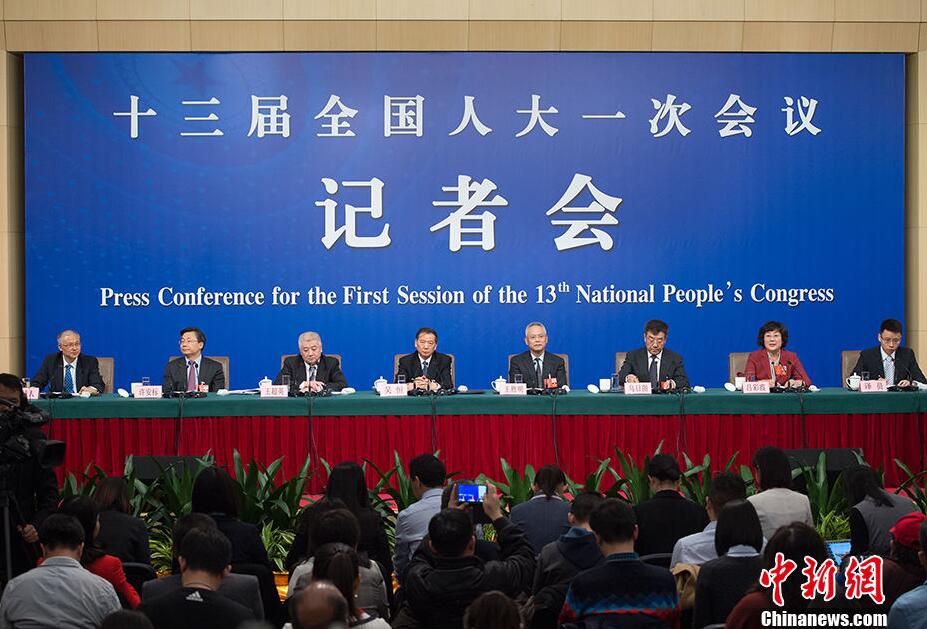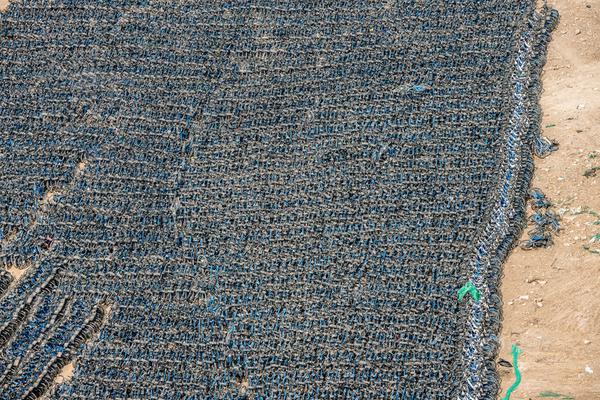
1. The storage management functions of the operating system include memory allocation, memory protection, address mapping and virtual memory. Memory allocation refers to allocating space for the process and managing memory usage. Memory protection refers to preventing one process from accessing the memory space of another process and protecting kernel code and data from illegal access.
2. The basic functions of storage management include: memory allocation, memory protection, memory expansion and virtualization of memory management. Now, let's discuss these functions in more detail.First of all, memory allocation is a basic function of storage management, which involves how to allocate memory space for programs.
3. Storage management mainly refers to the management of memory, the purpose of which is to improve the efficiency of memory use as much as possible. The object of memory management is the main memory, also known as memory. Its main functions include allocating and recycling the main memory space, improving the utilization rate of the main memory, expanding the main memory, and effectively protecting the main memory information.
4. Addressing space The operating system makes the system look much larger than the actual memory. Virtual memory can be many times the actual physical space in the system. Each process runs in its own independent virtual address space. These virtual spaces are completely isolated from each other, so the processes will not affect each other.

1. The operating system can pass a variety of Algorithms to manage memory, such as fixed partitions, variable partitions, partner systems and page management, etc. Among them, page management is the most commonly used memory management technology, which divides memory into pages of equal size and maps the logical address of the process to the physical address.
2. What are the main functions of the operating system? The main functions of the operating system are process and processor management, job management, storage management, device management and file management, as follows: process and processor management. Because the execution of the program must rely on the processor, only one program flow can be processed and executed at any time. Homework management.
3. You can use Disk Management to connect or load the local drive into any empty folder on the local NTFS volume. The loaded drive makes data easier to access and gives you the flexibility to manage data storage based on the working environment and system usage.
4. Determine the strategy of process scheduling. Give the process scheduling algorithm. Carry out the processing machine distribution. Memory management Another important resource in the computer system is the main memory. The execution of any program must obtain data information from the main memory.
5. Memory is flash memory, which cannot store things. It can only be managed by increasing or decreasing memory sticks. The CPU is a central processor, which can reduce the utilization rate of the CPU by ending the software process. If you want to enhance the use, you can replace a more advanced CPU, but pay attention to whether the interface of the new CPU is compatible with the motherboard.
1. Storage management mainly refers to the management of memory, the purpose of which is to improve the efficiency of memory use as much as possible. The object of memory management is the main memory, also known as memory. Its main functions include allocating and recycling the main memory space, improving the utilization rate of the main memory, expanding the main memory, and effectively protecting the main memory information.
2、Storage management in the operating system mainly realizes the management of the main memory of the computer. The Arena Plus loginmain object of storage management is memory, which is the most important resource for operating system management in addition to the processor.
3. Processor management: mainly control and manage the work of CPU. Storage management: mainly allocate and manage memory. Device management: mainly manage basic input and output devices. File management: responsible for the organization, storage, operation and protection of computer files.
4. Memory management mainly refers to the management of internal memory. The five functions of the operating system are processor management, memory management, device management, file management and job management. Processor management The most basic function of processor management is to process interrupt events. After configuring the operating system, various events can be processed.
5. Storage management is the management of the main memory, which is one of the important functions of the operating system. Main memory is a valuable resource in the computer system, and the management and effective use of main memory is a very important part of the operating system.
6. Job management: including tasks, interface management, human-computer interaction, graphical interface, voice control and virtual reality, etc. File management: also known as information management. Storage management: The essence is the management of storage space, which mainly refers to the management of the main memory.
Arena Plus login-APP, download it now, new users will receive a novice gift pack.
1. The storage management functions of the operating system include memory allocation, memory protection, address mapping and virtual memory. Memory allocation refers to allocating space for the process and managing memory usage. Memory protection refers to preventing one process from accessing the memory space of another process and protecting kernel code and data from illegal access.
2. The basic functions of storage management include: memory allocation, memory protection, memory expansion and virtualization of memory management. Now, let's discuss these functions in more detail.First of all, memory allocation is a basic function of storage management, which involves how to allocate memory space for programs.
3. Storage management mainly refers to the management of memory, the purpose of which is to improve the efficiency of memory use as much as possible. The object of memory management is the main memory, also known as memory. Its main functions include allocating and recycling the main memory space, improving the utilization rate of the main memory, expanding the main memory, and effectively protecting the main memory information.
4. Addressing space The operating system makes the system look much larger than the actual memory. Virtual memory can be many times the actual physical space in the system. Each process runs in its own independent virtual address space. These virtual spaces are completely isolated from each other, so the processes will not affect each other.

1. The operating system can pass a variety of Algorithms to manage memory, such as fixed partitions, variable partitions, partner systems and page management, etc. Among them, page management is the most commonly used memory management technology, which divides memory into pages of equal size and maps the logical address of the process to the physical address.
2. What are the main functions of the operating system? The main functions of the operating system are process and processor management, job management, storage management, device management and file management, as follows: process and processor management. Because the execution of the program must rely on the processor, only one program flow can be processed and executed at any time. Homework management.
3. You can use Disk Management to connect or load the local drive into any empty folder on the local NTFS volume. The loaded drive makes data easier to access and gives you the flexibility to manage data storage based on the working environment and system usage.
4. Determine the strategy of process scheduling. Give the process scheduling algorithm. Carry out the processing machine distribution. Memory management Another important resource in the computer system is the main memory. The execution of any program must obtain data information from the main memory.
5. Memory is flash memory, which cannot store things. It can only be managed by increasing or decreasing memory sticks. The CPU is a central processor, which can reduce the utilization rate of the CPU by ending the software process. If you want to enhance the use, you can replace a more advanced CPU, but pay attention to whether the interface of the new CPU is compatible with the motherboard.
1. Storage management mainly refers to the management of memory, the purpose of which is to improve the efficiency of memory use as much as possible. The object of memory management is the main memory, also known as memory. Its main functions include allocating and recycling the main memory space, improving the utilization rate of the main memory, expanding the main memory, and effectively protecting the main memory information.
2、Storage management in the operating system mainly realizes the management of the main memory of the computer. The Arena Plus loginmain object of storage management is memory, which is the most important resource for operating system management in addition to the processor.
3. Processor management: mainly control and manage the work of CPU. Storage management: mainly allocate and manage memory. Device management: mainly manage basic input and output devices. File management: responsible for the organization, storage, operation and protection of computer files.
4. Memory management mainly refers to the management of internal memory. The five functions of the operating system are processor management, memory management, device management, file management and job management. Processor management The most basic function of processor management is to process interrupt events. After configuring the operating system, various events can be processed.
5. Storage management is the management of the main memory, which is one of the important functions of the operating system. Main memory is a valuable resource in the computer system, and the management and effective use of main memory is a very important part of the operating system.
6. Job management: including tasks, interface management, human-computer interaction, graphical interface, voice control and virtual reality, etc. File management: also known as information management. Storage management: The essence is the management of storage space, which mainly refers to the management of the main memory.
UEFA Champions League live streaming free
author: 2025-01-07 03:58 DigiPlus fair value
DigiPlus fair value
811.89MB
Check bingo plus update today
bingo plus update today
241.55MB
Check LR stock price Philippines
LR stock price Philippines
577.13MB
Check Casino Plus GCash login
Casino Plus GCash login
687.26MB
Check TNT Sports
TNT Sports
323.63MB
Check Bingo Plus
Bingo Plus
591.59MB
Check Champions League
Champions League
358.58MB
Check UEFA European championship
UEFA European championship
157.24MB
Check Walletinvestor digi plus
Walletinvestor digi plus
155.65MB
Check UEFA Champions League live streaming app
UEFA Champions League live streaming app
294.12MB
Check DigiPlus fair value
DigiPlus fair value
899.27MB
Check Casino Plus app
Casino Plus app
225.15MB
Check Casino Plus login register
Casino Plus login register
921.55MB
Check Casino Plus login register
Casino Plus login register
293.27MB
Check LR stock price Philippines
LR stock price Philippines
661.34MB
Check UEFA Champions League live streaming app
UEFA Champions League live streaming app
944.76MB
Check Hearthstone Arena Tier List
Hearthstone Arena Tier List
237.33MB
Check UEFA EURO
UEFA EURO
745.36MB
Check LR stock price Philippines
LR stock price Philippines
763.58MB
Check Casino redeem
Casino redeem
868.69MB
Check UEFA Champions League
UEFA Champions League
994.81MB
Check Arena plus APK
Arena plus APK
777.31MB
Check App to watch Champions League live free
App to watch Champions League live free
877.58MB
Check bingo plus update today Philippines
bingo plus update today Philippines
444.62MB
Check UEFA Champions League live streaming free
UEFA Champions League live streaming free
776.41MB
Check UEFA European championship
UEFA European championship
581.78MB
Check Hearthstone Arena win rate
Hearthstone Arena win rate
541.68MB
Check Walletinvestor digi plus
Walletinvestor digi plus
611.94MB
Check Hearthstone arena deck Builder
Hearthstone arena deck Builder
959.17MB
Check Casino redeem
Casino redeem
216.53MB
Check Casino Plus login register
Casino Plus login register
354.46MB
Check 100 free bonus casino no deposit GCash
100 free bonus casino no deposit GCash
425.44MB
Check Hearthstone arena deck Builder
Hearthstone arena deck Builder
894.82MB
Check UEFA European championship
UEFA European championship
396.86MB
Check bingo plus update today Philippines
bingo plus update today Philippines
331.39MB
Check casino plus free 100
casino plus free 100
839.52MB
Check
Scan to install
Arena Plus login to discover more
Netizen comments More
728 bingo plus update today
2025-01-07 06:12 recommend
1508 UEFA European championship
2025-01-07 06:02 recommend
2887 UEFA EURO
2025-01-07 05:01 recommend
2515 Hearthstone deck
2025-01-07 04:50 recommend
2932 UEFA TV
2025-01-07 04:29 recommend